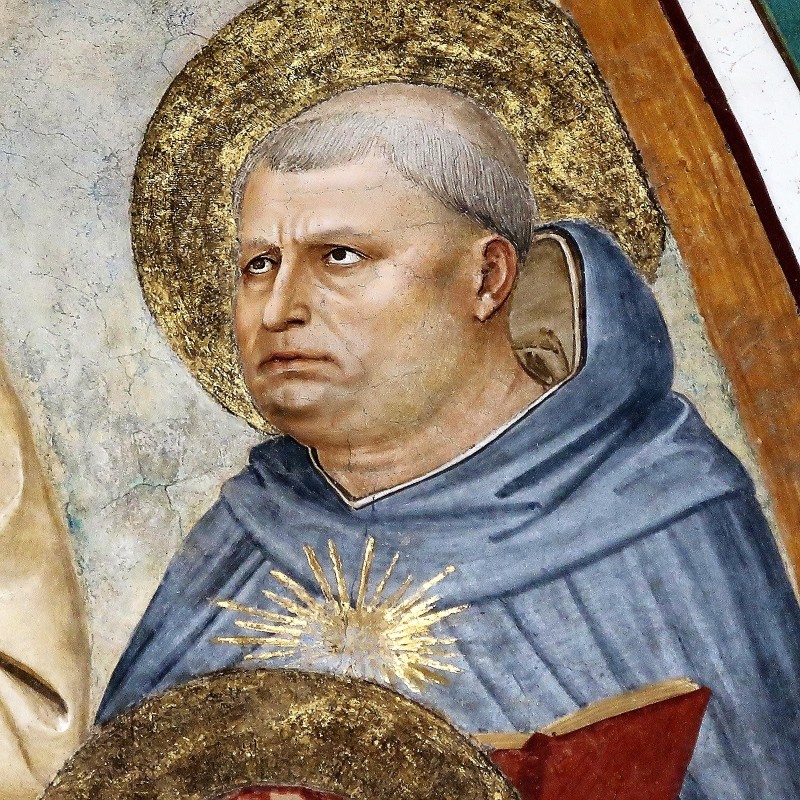Today is the 750th anniversary of the death at the abbey of Fossanova of St Thomas Aquinas in 1274.
St Thomas Aquinas 1225-1274
Painting by Fra Bartolommeo 1472-1517
Museo di San Marco Florence
Image: Media storehouse
Wikipedia has a lengthy introduction to his life, works of theology and philosophy and his reception and legacy at Thomas Aquinas
It also has an article about his canonisation in 1323 and the fate of his relics at Canonization of Thomas Aquinas
There is an entry for the Cistercian house where he died at Fossanova Abbey
I can make no claim to detailed knowledge of Thomism but to look at his writings is to look at a calm, ordered, disciplined system of thought that has endured, and whose range and harmony has helped ensure its centrality to Catholic thought.
As the Wikipedia article indicates one of the most striking things is the sheer volume - or, if you will, the sheer volumes, of St Thomas’s writings. It is claimed that he was capable of dictating two or more different works simultaneously to his scribes. He wrote both his encyclopaedic works and ones of matters of the moment, and also composed liturgical works such as the propers for Corpus Christi.

St Thomas Aquinas
Painting by Fr Angelico circa 1395-1455
Image: basilicacateriniana.it
This took place not in remote monastic seclusion but in a lifetime of less than fifty years which involved relocations from Naples to Cologne, to Paris, to Rome and Orvieto, back to Naples and his final journey towards Lyons. Much of that time he was teaching his fellow Dominicans on a regular basis.
It was also a life lived out against a background of intellectual ferment and political turmoil. The clash of Papal and Imperial claims occurred in a Europe threatened by the Mongol invasion, and in the case of central Europe it’s consequent devastation. Elsewhere there were localised conflicts on the margins between Christian and Muslim in Iberia, and with pagans in the Baltic, the uncertain future of the Christian presence in the Holy Land, the crusades of St Louis and vigorous internal political unheavels, not least in England in the reign of King Henry III. St Thomas’s native Sicilian kingdom was at the very centre of this. His family were by no means unaffected as the reign of the Emperor Frederick II took its course to 1250, the subsequent fighting for possession of the kingdom and the establishment of the Angevin dynasty from 1266-68 onwards. This was a turbulent, violent and bloody time, far removed from theological and philosophical contemplation.
That said it is important to understand that these were not distinct and different works, but one in which the Doctor Anglelichs lived and prayed and thought and wrote and had his being.
I was fortunate enough today to be able to attend online a Mass for the feast in the usus antiquior celebrated by a Dominican tertiary on the traditional day, rather than the modern one, assigned in 1970 which is the anniversary of St Thomas’s relics translation to the Dominican house in Toulouse on January 28th 1369.
Triumph of St Thomas Aquinas, Doctor Anglicus
Andrea di Bonaiuto, 1366
Fresco in the Basilica of Santa Maria Novella in Florence
Image: Wikipedia
St Thomas Aquinas, pray for us




1 comment:
Angelic Doctor Saint Thomas Aquinas, pray for us all.
Post a Comment